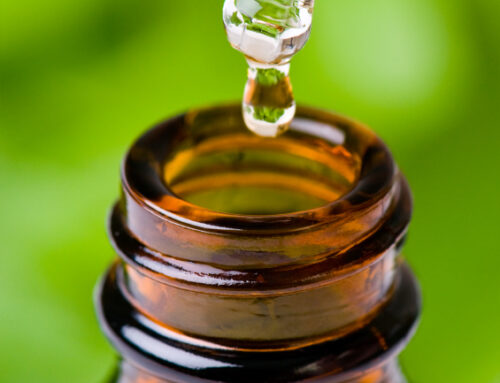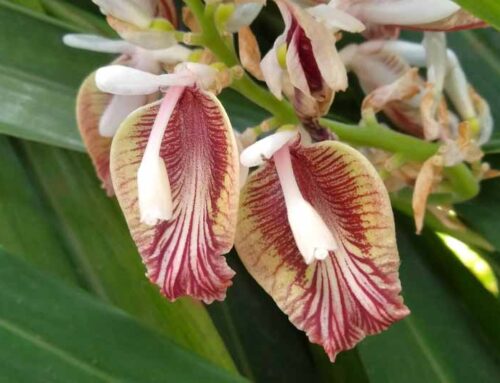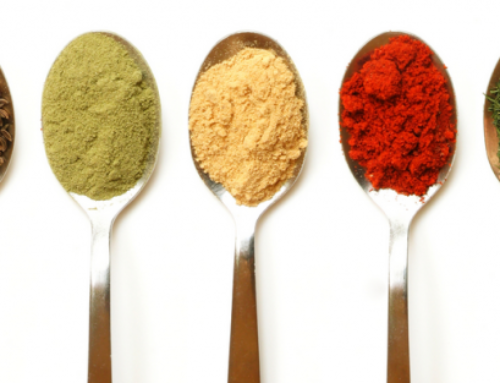When it comes to seasonal allergies, it can seem like there is nothing we can do but wait it out. Luckily, that is not the case. There are several natural remedies for seasonal allergies that can help reduce or avoid common symptoms. If you experience recurring seasonal allergies or if you are having a new reaction due to a move other variables, consider natural treatment for allergies. Check out these seven natural allergy relief methods to make this allergy season more manageable.
What Are Seasonal Allergies
Seasonal allergies are a common form of allergies that are caused by changes in the local climate or allergens that are present at certain times of the year. Common allergens that cause reactions periodically include pollen, mold, dust mites, animal dander, and even cockroaches. Generally, seasonal allergies spike during spring, summer, or fall due to different allergens in the air outside or inside your home.
Symptoms are generally limited to nasal congestion and irritation in the eyes, nose, and mouth. It is common to mistake seasonal allergies for the common cold or the flu. Symptoms may include the following:
- Itchy, watery or red eyes
- Circles under eyes
- Itchy mouth, nose or throat
- Runny or stuffy nose
- Drainage from the nose down the back of the throat also known as postnasal drip
- Temporary loss of smell
- Headache
- Sneezing
- Dry cough
- Tiredness
- Scratchy or sore throat
- Snoring
Nasal Irrigation
For any kind of nasal congestion, it is a good idea to practice healthy nasal irrigation to avoid infection. When left untreated, nasal congestion can lead to a build up of fluid that can lead to intense pressure and sinus infection. This will turn a one or two-day inconvenience into a seriously painful condition that can last up to twelve weeks or longer if it becomes chronic.
Baraka provides a natural treatment for allergies that impact the nasal passages with gentle nasal irrigation solutions and hand crafted ceramic Neti Pots. A Neti Pot is a great way to clear sinuses and prevent further infection. Our Neti pots are 100 percent lead-free, non-toxic, lightweight and easy to use, dishwasher safe and hold 10 ounces of saline solution or mineral salt solution. In addition, we offer a slim spout Neti Pot that is perfect for kids.
So how does a Neti Pot work? First, you want to make sure that whatever solution you are using is not hot but rather cooled to room temperature. For a hypertonic rinse add 1 teaspoon of mineral salt (more on this below). Then bend over the sink with your head turned to the side. Tip the Neti Pot so it drains into one nostril, the solution should travel through the sinuses and out the other nostril. Repeat on the other side.
For simple, preventative rinses, you can simply use saline solution rinses once per day. For allergies that are already causing postnasal drip, rinse with a hypertonic solution two to four times per day as needed. A hypertonic solution includes either mineral sea salt or infused salt added to distilled or boiled water.
Not all salt is created equal. Table salt is processed to remove all trace minerals and has additives that prevent clumping. While this doesn’t impact cooking, it doesn’t benefit your sinuses either and can actually cause a stinging sensation. Nasal rinses should not sting or cause a burning sensation, in fact, they should be rather gentle. For more information, see our mineral salt rinse instructional guide.
Essential Oils
Essential oils are concentrated oils extracted from various medicinal plants. They can be incredibly useful natural remedies for seasonal allergies. There are many different types of essential oils and each one has specific applications. The most common applications include topical, oral, or inhalable. However, not all types of essential oils can be taken all three ways. Make sure you familiarize yourself with the proper use of any essential oils before applying them directly to the skin or ingesting them.
In general, the best way to use essential oils to treat seasonal allergies is either topically or as an inhalant. Using essential oil blends that are safe for topical use can clear the sinuses when applied just under the nostrils. Alternatively, essential oils can be added to boiled water and inhaled as a steam to help drain clogged nasal passages.
Baraka has several blends that are perfect for the job. Our sinus rejuvenation oil is a powerful blend that was formulated to fight nasal infection, drain mucus, and improve overall sinus health. It can be used over a period of six to eight weeks to prevent or treat chronic sinus conditions such as seasonal allergies.
In addition, we also have a dry nose oil that can ve used to reduce dryness of the sinus cavities brought on by seasonal allergies when the cilia (hairs in the nose) are irritated and the nose is raw. Our Steam oil can also be used to relieve chest and nasal congestion and clear out mucus. Finally, our Aller-ease blend is specifically designed to relieve seasonal allergies naturally by reducing nasal inflammation and congestion while supporting the immune system.
Herbal Teas
A few herbs can go a long way when dealing with seasonal allergies. In fact, there are several natural herbs and other plants that can be incredibly beneficial for fighting infection, reducing inflammation, and boosting the immune system. In addition, the warmth of herbal tea can be soothing for the throat and nasal passages and help clear away mucus.
Ginger tea is a favorite for all types of conditions due to the many health benefits it offers. It is well known for helping fight nausea, but it has so many more uses than that. Ginger contains compounds that work as a natural anti-inflammatory and antihistamine. This means that it naturally reduces irritation in the nasal passages and throat while reducing allergic reactions. In addition, it boosts the immune system to naturally improve your body’s ability to fight infection brought on by seasonal allergies.
Peppermint tea acts as a natural decongestant and contains enzymes that act as a natural anti-inflammatory. This acts as a barrier that reduces the immune reaction caused by allergies. It is common for peppermint teas to be mixed with other beneficial herbs and natural substances such as lemon or chamomile.
Turmeric is another great natural tea that can help naturally reduce seasonal allergy symptoms. Turmeric root is a natural adaptogen which means that it literally helps your body create what it needs to balance hormones, minerals, and vitamins within several body systems. Turmeric tea can also reduce inflammation and boost the immune system to help reduce symptoms and even prevent them before they begin.
Vitamins and Supplements
Oftentimes, people can become more susceptible to seasonal allergies when they lack the balance of vitamins and minerals in their system to fight the body’s reaction to allergens at certain times of the year. If you commonly experience seasonal allergy symptoms, consider taking natural probiotics, vitamin D, quercetin, stinging nettle, butterbur, or astragalus.
Probiotics are beneficial for your natural healthy gut bacteria that help the body process vitamins and minerals that support the immune system. Research shows that probiotics can also alter the natural course of an allergy reducing the body’s reaction to respiratory reactions and sinus congestion brought on by allergens.
Vitamin D has a powerful impact on the body’s immune system, especially the part that reacts to common allergens. According to the Journal of Clinical and Experimental Allergy, balancing vitamin D levels reduces the effects of allergies in chronic patients as well as minimizing the risk for children.
Quercetin is a bioflavonoid found in many fruits and vegetables as well as black tea. It contains anti-inflammatory effects and antioxidants that act as an antihistamine reducing the response to allergic reactions. It actually helps block the development of allergies before they start and can reduce symptoms after the onset.
Stinging nettle is not so great when in contact with the skin but when consumed properly it balances histamine levels in the body that treats anaphylaxis and counteracts allergic reactions. This is generally used for more severe cases of allergic rhinitis, also known as seasonal allergies.
Butterbur is a natural anti-inflammatory herb that is beneficial in relieving symptoms of seasonal allergies and has been proven to be just as effective as Zyrtec, a manufactured, over-the-counter allergy medication that comes with side effects. Butterbur will not cause drowsiness like pharmaceutical alternatives with similar relief strength.
Astragalus is another herb that is used to reduce inflammation and is even used to treat chronic respiratory conditions such as asthma. It also has an anti-fatigue effect which can help fight the feeling of tiredness brought on by seasonal allergies. It is best to treat a runny nose, sneezing, and itching.
Drink Fluids
Once you begin to experience seasonal allergy symptoms, it is important that you drink plenty of fluids. Like any other illness, your body is having an immune reaction to foreign substances entering the body. This causes it to go into overdrive which requires more effort within the body systems.
Drinking fluids will ensure that your body has the capacity it needs to fight any infection or inflammation properly without bringing on further symptoms such as headaches, fatigue, or body aches from dehydration. The body actually begins experiencing dehydration symptoms before you begin feeling thirsty so do not rely on that as an indicator.
Warm liquids can also help the nasal passages naturally release mucus and reduce the risk of sinus infection. Teas or warm broth can be a great way to stay hydrated, gently stimulate nasal passageways, soothe the throat, and get additional vitamins and minerals your body needs.
Avoid Common Allergens
Unfortunately, allergies can’t always be avoided or counteracted completely through natural or medical practices. The best way to reduce allergy symptoms is to avoid allergens that you know cause a reaction. Understandably, this is not always possible with seasonal allergies. However, there are steps you can take to reduce exposure.
For spring and summer allergies that are generally brought on by pollen, check local weather reports and air quality trackers. These can tell you what days are higher in pollen so you can close your windows and avoid spending too much time outside. You can also take any of the above-mentioned natural remedies for seasonal allergies to reduce symptoms before they even begin.
For allergies brought on by dust and other allergens found in the house in the fall, try to maintain a dust-free environment. Also, keep in mind that other bugs such as cockroaches can cause reactions as the weather gets colder. Consider having a pest control company check your house for potential exposure heading into the fall.
Clean, Moisture Controlled Air
One of the best ways to naturally prevent seasonal allergies is to make sure that you are in an environment that is as clean as possible. You can try to make sure that your home environment is as clean as possible by using air filters or even having preserved moss in your home which acts as a natural air filter. This can remove contaminants from the air and reduce the risk of having reactions in your own home.
In addition, making sure that your home stays at an ideal moisture level can reduce unnecessary irritation in the nasal passageways during high sensitivity times. Humidifiers or diffusers can help control the moisture levels during dry months while dehumidifiers can reduce moisture during wet months that can cause mold or mildew.
The fight against seasonal allergies is not as hopeless as it seems. With these natural remedies for seasonal allergies, you are sure to find a system that works for you before you ever feel that first sneeze come on. And for the times that allergies can not be prevented, we have you covered for that too. Check out our store to see exactly what products we can provide for you during your next seasonal allergy flare-up.






Leave A Comment